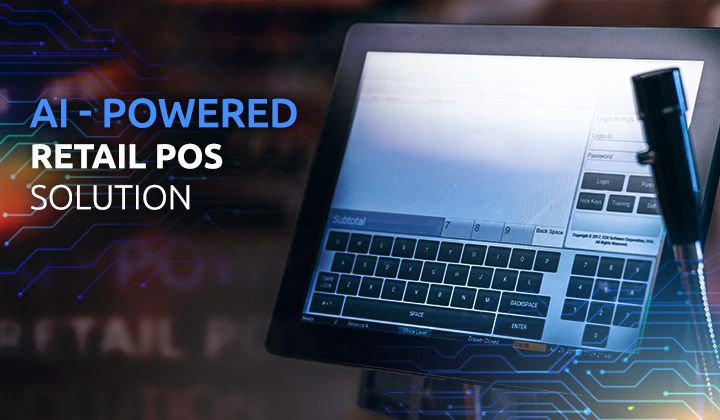In the ever-evolving landscape of retail technology, the integration of Artificial Intelligence (AI) and Machine Learning (ML) into Point of Sale (POS) systems is ushering in a new era of efficiency, personalization, and predictive analytics. Let’s delve into the transformative role of AI and ML in reshaping the landscape of retail transactions.
Personalized Customer Experiences
Impact: Tailored Interactions Based on Customer Behavior
AI and ML algorithms analyze vast amounts of customer data, including purchase history, preferences, and browsing patterns. This insight allows POS systems to deliver personalized recommendations, promotions, and offers in real-time. Whether online or in-store, customers experience a tailored and engaging journey, enhancing their overall satisfaction.
Predictive Analytics for Inventory Management
Impact: Optimized Stock Levels and Preventive Actions
AI and ML in POS systems facilitate predictive analytics for inventory management. By analyzing historical sales data, seasonal trends, and external factors, these systems can predict future demand accurately. Retailers can optimize stock levels, reduce the risk of overstock or stockouts, and make informed decisions to prevent potential inventory challenges.
Fraud Detection and Prevention
Impact: Proactive Measures Against Unauthorized Transactions
AI-powered fraud detection in POS systems is a proactive defense against unauthorized transactions. Machine Learning algorithms analyze transaction patterns, identifying anomalies that may indicate fraudulent activity. This real-time detection ensures that businesses can take immediate action to prevent financial losses and protect both customers and the integrity of the transaction process.
Dynamic Pricing Strategies
Impact: Automated Price Adjustments Based on Market Dynamics
AI and ML algorithms in POS systems enable dynamic pricing strategies. By analyzing market trends, competitor pricing, and customer behavior, retailers can automatically adjust prices to remain competitive and maximize revenue. This adaptive approach ensures that pricing aligns with real-time market dynamics, fostering agility and responsiveness.
Enhanced Checkout Efficiency
Impact: Streamlined Transactions and Reduced Wait Times
Machine Learning algorithms optimize the checkout process by predicting transaction times and identifying bottlenecks. POS systems equipped with these capabilities can allocate resources effectively, ensuring that staff levels match demand. This results in streamlined transactions, reduced wait times, and an overall improvement in the efficiency of the checkout experience.
Customer Sentiment Analysis
Impact: Understanding Customer Feedback and Emotions
AI-driven sentiment analysis tools can analyze customer feedback, reviews, and social media interactions related to a business. By understanding customer sentiment, POS systems can provide insights into areas that require improvement or areas where customers are particularly satisfied. This feedback loop enables businesses to continually enhance the customer experience.
Adaptive Promotions and Loyalty Programs
Impact: Tailoring Promotions to Individual Customer Preferences
AI in POS systems enables adaptive promotions and loyalty programs. By analyzing customer behavior and preferences, these systems can tailor promotions and rewards to individual customers. This level of personalization not only increases the effectiveness of promotional efforts but also enhances customer loyalty and engagement.
Integration with Virtual Assistants
Impact: Seamless Interaction with Voice-Activated Systems
AI-powered POS systems can integrate with virtual assistants, enabling customers to interact with the POS using voice commands. This hands-free approach enhances accessibility and convenience for customers, providing a modern and efficient way to complete transactions.
Continuous Learning and Adaptation
Impact: Evolution of Capabilities Based on Real-Time Feedback
One of the key strengths of AI and ML is their ability to continuously learn and adapt. POS systems equipped with these technologies evolve over time based on real-time feedback, improving their accuracy, efficiency, and ability to provide valuable insights for businesses.
Conclusion
In conclusion, the integration of AI and Machine Learning into Point of Sale systems marks a significant advancement in the capabilities of retail technology. From personalized customer experiences and predictive analytics to fraud prevention and dynamic pricing, these technologies are reshaping the landscape of retail transactions. As businesses embrace the transformative potential of AI and ML in their POS systems, they position themselves at the forefront of innovation, providing enhanced value to both customers and their own operations.
